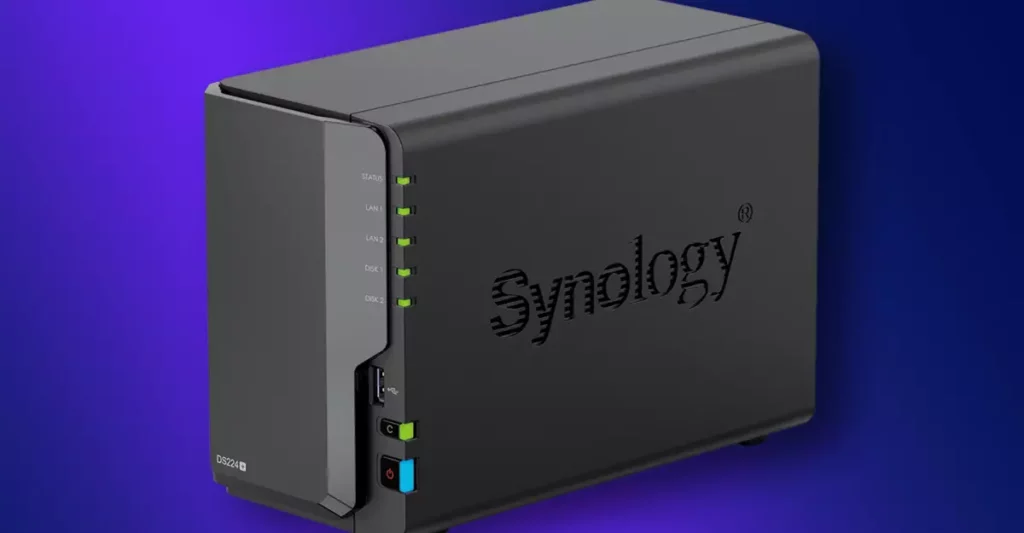In a surprising move that has stirred discontent within the tech community, Synology, a renowned player in the Network Attached Storage (NAS) market, has decided to limit third-party hard drive compatibility with their systems from 2025 onwards. This shift from a previously open and customizable platform to a more controlled environment suggests a fundamental change in how Synology views its users and the market at large. While this decision may be framed as a step towards ensuring reliability, the reality could be a significant chop at the roots of consumer choice, a value that has always been at the core of the NAS experience.
For years, consumers cherished the flexibility offered by NAS systems. Users could cherry-pick their hardware, opting for the best combinations of affordability, performance, and capacity. However, the impending restrictions echo a trend seen in other tech sectors, where a premium is placed on brand loyalty over consumer agency. By curtailing third-party support, Synology appears to pave the way for increased profits through promotional strategies, potentially placing its interests above its customers’.
The Double-Edged Sword of Reliability
It’s easy to see how Synology justifies this shift: they claim that using only certified hard drives will significantly mitigate risks associated with drive failures. While this argument is not without merit, it taps into a broader narrative about control versus reliability. The question arises—should consumers sacrifice freedom of choice to achieve what can be seen as a superficial enhancement in reliability? The tech industry is rife with examples of companies that have prioritized profit via suppressive practices, often under the guise of “quality assurance.” Synology needs to tread carefully; the fine line between protecting consumers and stripping them of their freedoms is one that can easily be blurred.
Some proponents of this policy insist that limiting choices will only help the user experience, alleviating fears of compatibility issues. However, such an approach can also challenge the very principle of empowerment that tech enthusiasts have long advocated. It’s evident that Synology’s directives could usher in an era of complacency among users, who may feel obliged to adhere strictly to branding rather than retaining the freedom to explore alternatives.
Echoes of Past Practices in Tech
Synology’s current actions evoke memories of companies that have sought to control their ecosystems entirely, evoking skepticism and pushing consumers into uncomfortable corners. While they might seek to present themselves as a reliable example of quality control, the public may not be so easily swayed. When the line is drawn around compatible products, we begin to see echoes of technology practices that trap consumers in a cycle of dependence on certain brands—think of the inkjet printer market, where proprietary ink has led to frustration, wasted money, and diminished customer loyalty.
Although Synology tries to distinguish itself from these negative practices by claiming enhanced performance and lower failure rates, the reality is that consumer sentiment can turn sharply in the face of perceived monopolistic control. And when competition in the NAS market begins to flourish—propelled by consumer backlash against these restrictive policies—other providers ready to offer a more inviting and liberal setup could find a golden opportunity to draw dissatisfied Synology users into their fold.
Concerns for Existing Users
Interestingly, while Synology assures current users that their devices will remain unaffected, one can’t help but sense an underlying tension as they consider the implications for the future. Promises made today yield no guarantees tomorrow. As new models come online, will existing hardware be adequately supported? The dichotomy between satisfying long-time customers and attracting new ones at the helm of restrictive policies is a precarious position for any company.
For existing users, the reassurance offers scant comfort. Many will question whether future software updates will even maintain broad compatibility, and whether they’ll eventually find themselves nudged towards more regulated solutions. This uncertainty can generate a palpable sense of anxiety in a loyal customer base that has invested time, resources, and trust in the brand.
The Ripple Effect on Market Dynamics
With the tech market constantly evolving, Synology’s move may inadvertently serve as a powerful catalyst for changes not only within their ecosystem but across the broader industry landscape. The allure of a flexible, adaptable NAS solution is deeply ingrained in consumer psyche, and any perceived limitations can inspire users to explore options that honor their need for agency. Innovative new players in the NAS sector now have a golden opportunity to capitalize on the discontent brewing in reaction to Synology’s policy.
As we observe this situation unravel, we are left with the question of how Synology’s impending restrictions will echo throughout the sector. The technology community thrives on options, customization, and autonomy; if Synology stubbornly ignores this reality, they may very well be inviting upheaval in their established market foothold. In an industry that has traditionally empowered consumers, Synology’s strategy can open doors to new competition, shaking long-held assumptions in a marketplace where flexibility, reliability, and user-centric values reign supreme.









Leave a Reply